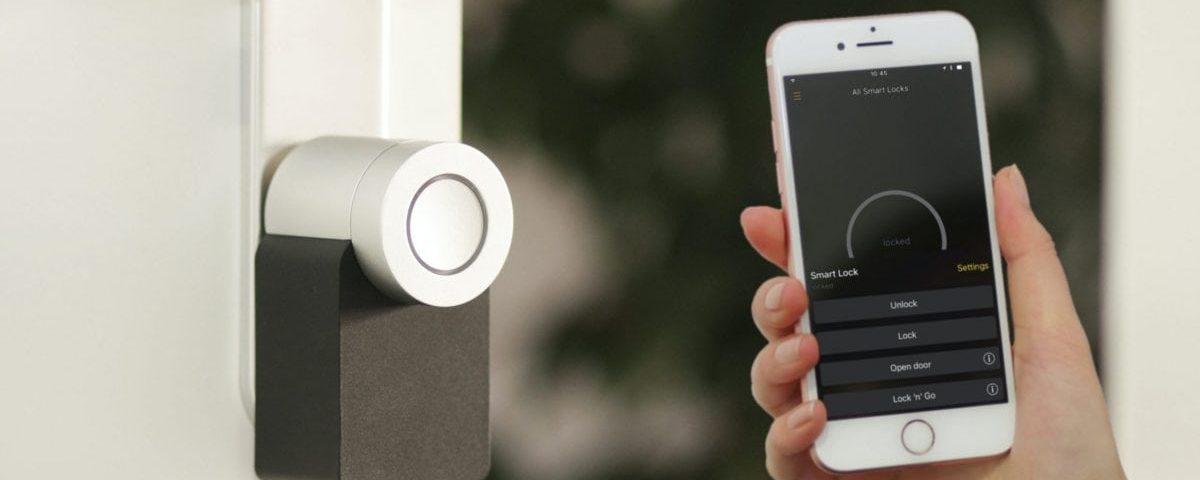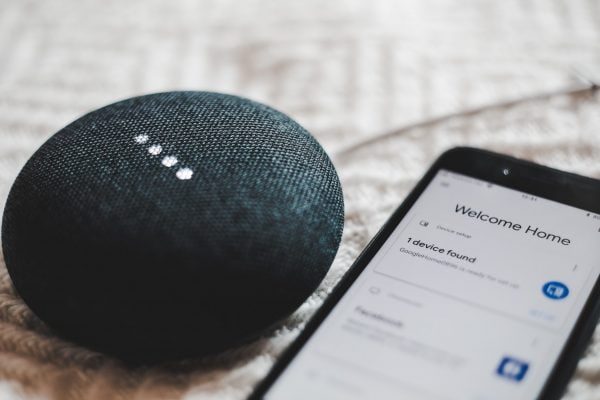
With technology on the rise, smart homes are becoming more and more popular. While home automation amazes many people, some are concerned and confused about it. Sure, it’s cool to have a refrigerator that tells you you’re almost out of your favorite food. It’s also pretty convenient to turn on your AC or heat in the house while you’re still on your way home. But what about safety – is that a strength or a weakness? If you’re not sure where you stand regarding smart home systems, you’re in the right place. In this article, I will list all the pros and cons of living in smart homes. So, buckle up for an educational ride!
Pros Of Living In Smart Homes
Smart homes wouldn’t be so popular if they didn’t provide some great benefits. So, let’s see what you can count on if you decide to live in a smart house!

Living in a smart home comes with many benefits, such as energy efficiency and improved safety.
Super Convenient
We already have smart cars, so why not live in a smart house as well? When it comes to smart homes, one thing is sure – they make our lives much more convenient and more manageable. These systems allow you to adjust, change, or turn things on and off without standing up or even being in the house. Not only can you control all these processes on your phone, but you can also schedule them for wherever’s most convenient for you.
Additionally, you can stop worrying about turning off all the lights and appliances when you go to sleep; smart house systems will do that automatically. You can practically customize your house to your specific needs and wants. Believe it or not, this is just the tip of the iceberg of all the conveniences smart homes offer.
Just imagine how smooth the relocation to your new house would be. The smart system could help you with organizing your new home before unpacking. It would be so much easier to prepare the ground and unpack if you had smart lists and notifications to remind you what to do next.
Energy-efficient
Sustainable living is much appreciated nowadays. Part of being sustainable is being energy-efficient. This is exactly what you can embrace by living in a smart home. Such homes help you save energy in two ways. To begin with, you may customize the AC/heat and lighting controls to suit your needs. So, better optimization equals lower energy consumption. Smart appliances can also respond to utility company signals to prevent consuming energy during high-demand hours.
Provide Accessibility
Conventional homes are seldom accessible. On the other hand, smart homes can be the perfect solution for elderly and disabled people. Since smart houses offer features like voice-command systems and lights and appliances control, seniors don’t have to worry about forgetting their keys or turning off appliances. Additionally, people with disabilities can be more independent in smart homes thanks to these excellent features.
Improve Safety
Living in smart homes has a double benefit when it comes to safety. The first one that comes to mind is house security. A smart surveillance system can help you see everyone and everything going on in your home 24/7. Therefore, you don’t have to worry about your family’s safety anymore!
Furthermore, the smart home systems can turn off your stove or iron when you forget to do so (which is probably too often) or even notify you before immense damage in your home occurs so you can fix it in time. This is another safety improvement you can rely on if you live in a smart home.
Offer Insurance Benefits
Smart houses are also considered less vulnerable to robbery by some insurance companies and hence receive reductions on their premiums. This implies that you may save a large amount of money over time by owning a smart home rather than a traditional one. So, make sure to check with your insurance company about this benefit.
Cons Of Living In Smart Homes
It seems like living in smart homes has some significant advantages. However, it’s not all roses and butterflies. Let’s see some cons as well!

There are some significant drawbacks when it comes to this type of house.
High Installation Costs
Smart house software can be pretty expensive. Even the more affordable versions can break a bank. In addition, you have to hire a contractor to install the software and connect all devices. That’s an additional cost for you as well. So, if you’re not ready for this kind of investment, you should reconsider living in a smart home. However, remember that a smart home system can save you money in the long run.
Compatibility
Unfortunately, not all systems you wish to integrate into your home automation will be compatible with your device. You may also need to utilize various applications and programs to manage and keep track of the technology in your home. A centralized platform allows you to control all systems, but it’s pretty expensive, so not everyone can afford it.
Vulnerability To Internet Shutdown
Another weakness of living in smart homes is that they need a reliable and robust Internet connection to work correctly. If your Internet goes down, the chances are most smart systems will go down as well. That’s why it’s a good idea to have a backup plan. However, facing this type of unreliability in your home can be exhausting. Just imagine your whole house stops functioning just because the Internet is down.
Complex System
Although smart homes have some pretty cool features, be prepared for confusion at the beginning. Not all devices and systems are user-friendly. You’ll have to put in the time to learn how to use them. Especially if you’re technologically challenged, make sure to do your research and install the system that won’t give you a hard time trying to use it.
Power Surge Problems
A single power surge might grow into a significant problem if smart devices operate your entire home. If a power surge damages your router, all your devices will go offline. This is a common problem with interconnected smart home technologies that rely on wireless connections.
Final verdict about living in smart homes
Both pros and cons of living in smart homes make a great point. But it all comes to one thing – are you ready to deal with all the disadvantages in order to enjoy the benefits? Or are you afraid the cons are too powerful? It’s up to you to decide what works better for you and your family. One thing is sure – smart homes aren’t going anywhere; they are here to stay!





There are no comments yet